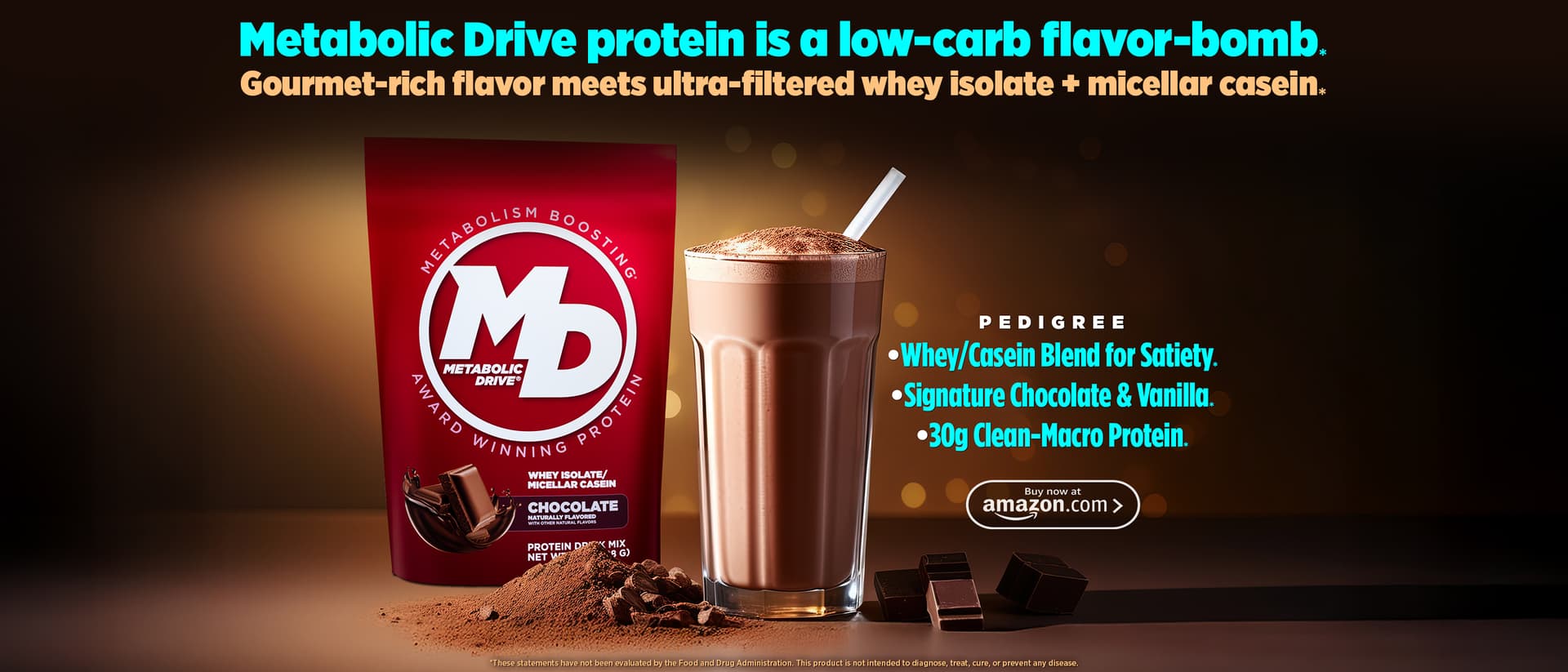by Chris Shugart
Make one dietary change and fat loss will be a whole lot easier. Here's the science.
I swear, the mainstream media does everything it can to keep people fat and sick. It's almost as if their main source of revenue comes from advertising drugs for fat and sick people. (Yep, that's sarcasm.)
Recently, I've read a half-dozen articles about the dangers of protein. Yes, protein. The macronutrient most responsible for keeping you full, lean, and strong. Why is it "dangerous?" Well, according to the mainstream media and the chubby dieticians they choose to interview, if you eat a lot of protein, you might forget to eat vegetables.
Really. That was the gist of most of these articles and news reports. They're scaring people away from protein, the single most important thing you can consume to avoid fatness and all the sickness that comes along with it. Shame on them.
With that mini-rant out of the way, let's look at a new fat-loss study that proves (yet again) that protein is king.
The Study
This 60-day study involved 135 non-exercising obese people and compared three different diets. Participants were divided into groups:
- High-Protein Diet – These folks consumed 30% protein, 40% carbs, and 30% fats, with a 500-750 calorie daily deficit. Protein was approximately 0.73 to 0.91 grams per pound of body weight, and they were provided with protein powder to hit their numbers.
- Calorie Restriction – This group followed a "balanced" macronutrient diet: 15% protein, 55% carbs, 30% fat, also with a 500-750 calorie daily deficit.
- Intermittent Fasting – This group followed a 5/2-style plan. They ate normally (balanced diet, 15% protein) for five days and restricted intake to 500-600 calories (high-carb, low-protein) on two non-consecutive days per week, achieving a similar weekly calorie deficit as the other groups.
All subjects underwent DEXA testing and a variety of blood tests.
What Happened?
Short answer: High protein outperformed lower-protein calorie restriction and intermittent fasting:
- Weight Loss: The high-protein group lost an average of 15 pounds compared to 11.5 pounds for calorie restriction and 10.8 pounds for intermittent fasting.
- Fat Mass Reduction: The high-protein group reduced fat mass by 13 pounds compared to 9 pounds for calorie restriction and 8.4 pounds for intermittent fasting.
- Lean Mass Preservation: The high-protein group lost only 2 pounds of lean mass compared to 2.4 pounds for calorie restriction and 2.6 pounds for intermittent fasting.
- Cardiometabolic Benefits: The high-protein group saw greater improvements in triglycerides (-22%), fasting glucose (-10%), and insulin (-18%) compared to calorie restriction and intermittent fasting.
- Satiety: The protein group reported more fullness and less hunger than the other groups.
In short, the protein eaters lost more fat (especially from the visceral/belly area) and preserved more muscle mass (remember, they weren't lifting).
How to Use This Info
It's hard to beat a modest calorie reduction combined with a higher protein diet for fat loss. And most of the time, the higher protein intake "accidentally" leads to the calorie reduction because protein is filling and has the highest thermic effect: you burn a lot of extra calories just digesting it compared to fats and carbs.
Most of the protein eaters in this study came in at just under a gram of protein per pound of body weight. For non-obese individuals needing to drop some fat, shoot for 1 gram per pound of body weight.
Use protein shakes like the study subjects to make it easy. Ideally, choose a protein blend containing micellar casein, the only protein shown to be anti-catabolic: it helps prevent muscle loss while dieting. As a bonus, micellar casein keeps you full longer compared to a plain whey shake. Metabolic Drive (Buy at Amazon) contains a hefty dose of micellar casein.
If you'd rather chew your protein instead of drink it, just add Metabolic Drive to your favorite foods. Here are some recipe ideas.
Reference
- "Effects of High-Protein Diet, Calorie Restriction, and Intermittent Fasting on Body Composition, Cardiometabolic Health, and Gut Microbiota in Obese Adults: A Randomized Controlled Trial" Frontiers in Nutrition, 2023.



